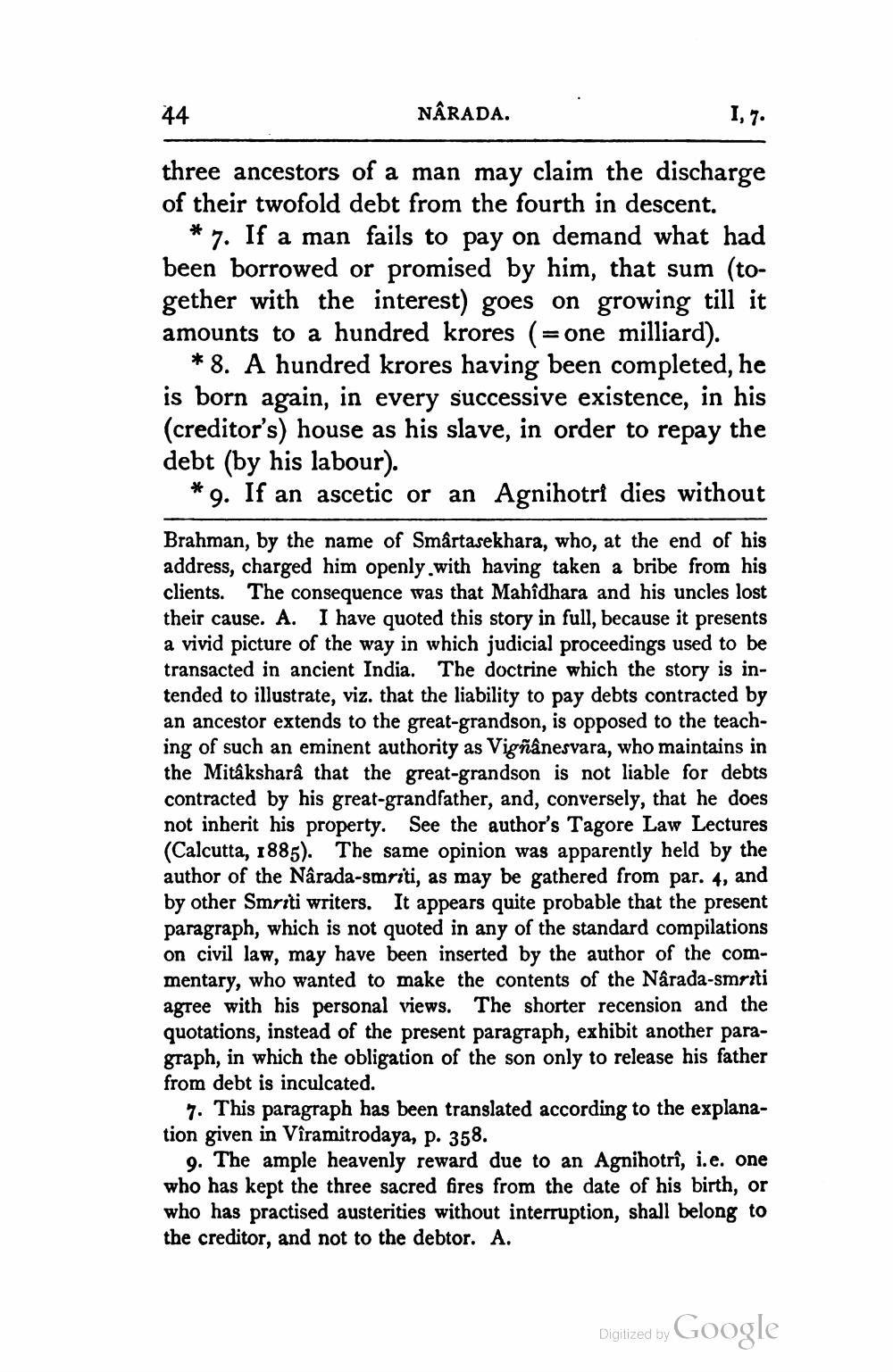________________
44
NÂRADA.
1,7.
three ancestors of a man may claim the discharge of their twofold debt from the fourth in descent.
* 7. If a man fails to pay on demand what had been borrowed or promised by him, that sum (together with the interest) goes on growing till it amounts to a hundred krores (= one milliard).
*8. A hundred krores having been completed, he is born again, in every successive existence, in his (creditor's) house as his slave, in order to repay the debt (by his labour).
* 9. If an ascetic or an Agnihotri dies without Brahman, by the name of Smartasekhara, who, at the end of his address, charged him openly with having taken a bribe from his clients. The consequence was that Mahîdhara and his uncles lost their cause. A. I have quoted this story in full, because it presents a vivid picture of the way in which judicial proceedings used to be transacted in ancient India. The doctrine which the story is intended to illustrate, viz. that the liability to pay debts contracted by an ancestor extends to the great-grandson, is opposed to the teaching of such an eminent authority as Vigñanesvara, who maintains in the Mitaksharâ that the great-grandson is not liable for debts contracted by his great-grandfather, and, conversely, that he does not inherit his property. See the author's Tagore Law Lectures (Calcutta, 1885). The same opinion was apparently held by the author of the Nârada-smriti, as may be gathered from par. 4, and by other Smriti writers. It appears quite probable that the present paragraph, which is not quoted in any of the standard compilations on civil law, may have been inserted by the author of the commentary, who wanted to make the contents of the Narada-smriti agree with his personal views. The shorter recension and the quotations, instead of the present paragraph, exhibit another paragraph, in which the obligation of the son only to release his father from debt is inculcated.
7. This paragraph has been translated according to the explanation given in Viramitrodaya, p. 358.
9. The ample heavenly reward due to an Agnihotrî, i.e. one who has kept the three sacred fires from the date of his birth, or who has practised austerities without interruption, shall belong to the creditor, and not to the debtor. A.
Digitized by Google




